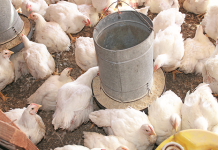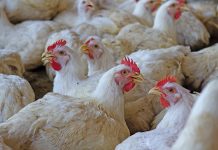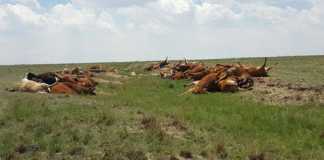They support smallholder farmers and marginalized groups such as young people and women whose pooled resources provides them more purchasing and negotiating power. Rural cooperatives also empower their members economically and socially through better access to markets and create sustainable rural employment.
In 2011, as the world’s largest agency fighting hunger, the World Food Programme (WFP) bought over 2.4 million tons of food valued at more than US$ 1.2 billion to feed more than 90 million hungry poor worldwide. Almost two-thirds of these purchases were made in developing countries.
In most cases, we buy from suppliers through a competitive process to ensure that the money we receive from donors such as Italy buys as much food as possible. But in recent years, we began testing new ways to buy food to determine whether our large purchasing footprint can benefit rural farmers.
In 2008, a combined effort of WFP and partners led to the launch of the Purchase for Progress (P4P) initiative. P4P supports smallholder farmers to achieve better yields, reduce their losses after the harvest, improve the quality of their crops and sell to reliable buyers for a fair price.
Through P4P, cooperatives receive support from WFP and over 200 partner organizations in creating or improving storage facilities, in handling their grains after the harvest, in business management and literacy. Trainings show them also how to strengthen their organisation, keep records and negotiate with potential buyers.
Angela Marko Malle, a member of a Tanzanian cooperative that takes part in P4P, acknowledges that “the benefits of P4P go beyond the extra money I’m earning, it is mainly the knowledge that I am acquiring. Thanks to the trainings, I have learned to increase quality, better store my maize and avoid post-harvest losses, to keep records and to work together with the other members of our group.”
According to the 2010-2011 State of Food and Agriculture Report, women make up on average 43 percent of the agricultural labour force in developing countries. To increase the well-being of women engaged in smallholder farming, P4P is working with women-only cooperatives and is encouraging mixed cooperatives to bring in more women, especially into leadership positions.
WFP and partners are supporting activities with the potential to enhance women’s access to markets and make sure they have control over the income they have generated. These activities include buying crops traditionally grown and marketed by women, as well as creating opportunities for women’s employment in the food handling and processing sector.
One of the lessons P4P has generated to date is that cooperatives can supply high-quality food provided there is an investment in their capacity and they have an assured market. Once farmers understand that better quality equals more money, and they receive the right training, they are quick to improve the quality of their product. The higher quality product has a multiplying effect by providing better nutrition for their own families.
“We did not have machines that would help us to clean our grains, nor anyone that could teach us what to do to achieve a good quality product to sell,” says Valentín Alfaro from El Salvador. “WFP has created new opportunities and new contacts so that we can compete fairly, both men and women, and in this way with better production we have a better future.”
Today, more than 800 cooperatives in 20 countries in Africa, Latin America and Asia take part in P4P, with a total membership of over 1 million smallholders. More than 350 cooperatives have so far signed contracts with WFP to deliver almost 190,000 tons of food.
The great majority of the cooperatives are grass-root and community based farmers’ organizations. These groups have little or no experience with collective marketing prior to P4P, limited infrastructure and limited links to formal credit sources. With the support of our partners, WFP is working towards enabling these cooperatives to become autonomous market players that are able to sell a good quality produce, make profit and lift their members out of poverty. There is much promise. WFP will continue to seek out and leverage opportunities such as P4P in the fight against hunger.













